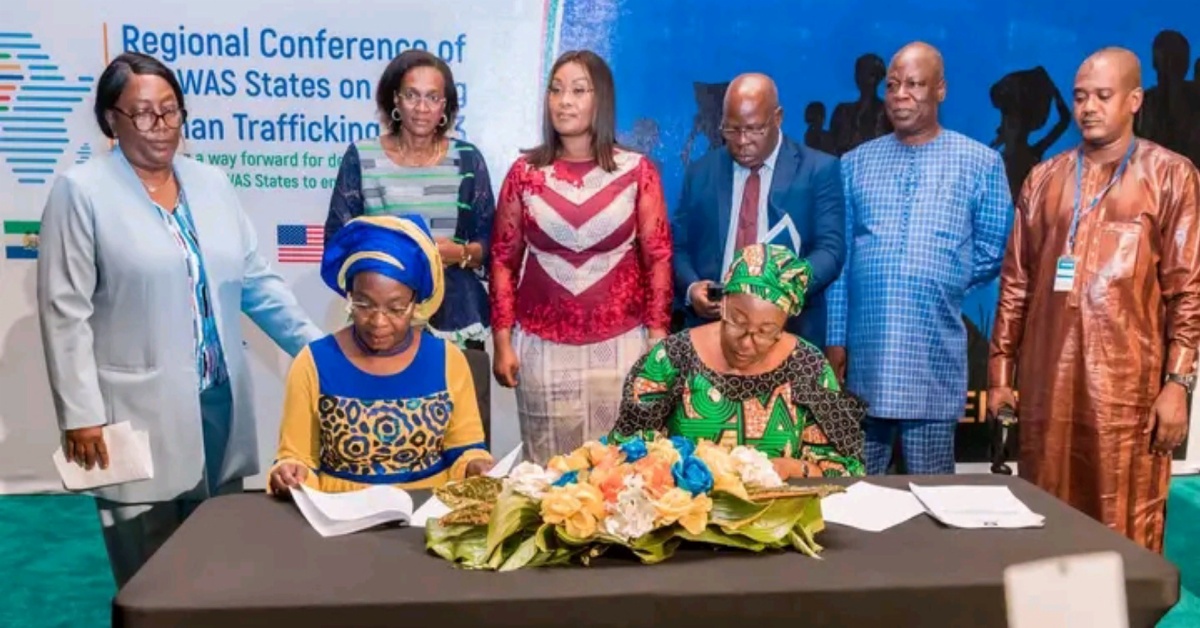The Regional Conference of ECOWAS States on ending Human trafficking has ended on a positive note on Thursday 26th April 2023 in Freetown.
The conference was co-hosted by the government of Sierra Leone in Partnership with Economic Community of West Africa States, with joint support of International Organisation for Migration (IOM) , the Africa Programming and Research Initiatives to End Slavery APRIES and the University of Georgia on a two-day Regional Conference of ECOWAS members states to eradicate human Trafficking
As the keynote speaker of the official opening ceremony, President Bio told members of the Economic Community of West African States [ECOWAS] to bolster education and awareness at the community level on prevention protect survivors by providing services that will dignity to survivors.
He affirmed that life is a precious gift which should never be put on sale. “No doubt traffickers and trafficking networks are becoming more sophisticated and harder to detect. Previous speakers have indicated that they are deploying technology to and using unethical model and illicit financial flows to evade laws enforcement,” President Bio said.
Dr. Omar Alieu Touray, ECOWAS president reveals that there were 3.5 million human trafficking victims on a monthly basis and a majority was from West Africa and affirmed that ECOWAS members should see the fight as a humanitarian Obligation.
Director of APRIES, Dr, David Okech, congratulated the government of Sierra Leone for hosting the conference. He revealed that they are in collaboration with the University of Georgia in the U.S AND THE University of Liverpool in the United Kingdom. He added that here in Sierra Leone they are focused on reducing child trafficking and they also focus on Sex trafficking in Senegal.
The event presented a regional roadmap developed to set anti-trafficking priorities for the region. These priorities include sharing lessons learned and strategies to implement national action plans, promoting stronger data collection mechanisms, finding opportunities for regional mechanisms to strengthen the prevention, and protection of trafficking victims, and prosecuting traffickers.
Meanwhile, Recent research carried out by the African Programming and Research Institute to End Slavery (APRIES) has found out that child trafficking is still prevalent in the Northwest region of Sierra Leone.
The result proved that the practice is still active in Kambia District with about 34 percent of children aged 5-17 have experienced child trafficking and 40 percent experienced child labour. It said that most of the trafficked children were forced to work as domestic servants, in farms and street vendors for meagre or no sum of money.
The research pointed out that these children were also forced to do inhumane activities like carrying heavy loads or at times exposed to extreme heat or cold.
Some of the victims said that they were lured into such after being taken into care by foster parents. They said their foster parents forced them into carrying out activities outside their homes like selling of sachet water disadvantaging them from education.



 Post a comment
Post a comment









Comment(s)
Disclaimer: Comments expressed here do not reflect the opinions of Sierraloaded or any employee thereof.
Be the first to comment